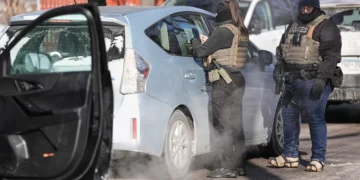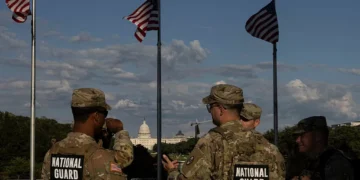CIVICUS, a global alliance of civil society organizations, has recently discussed the implications of the US Supreme Court’s ruling on presidential immunity with Ciara Torres-Spelliscy, a distinguished professor of Law at Stetson University College of Law. The ruling, which was announced on 1 July, has sparked widespread debate and raised concerns about its potential impact on the upcoming presidential election on 5 November.
The ruling states that presidents have absolute immunity for the exercise of their core constitutional duties. This means that they cannot be criminally prosecuted or sued for actions taken in their official capacity as the head of state. This immunity extends to both current and former presidents, and covers not only their time in office but also any actions taken before or after their term.
This decision has significant implications for the US political landscape, as it effectively shields the president from any legal consequences for their actions. It has also raised questions about the balance of power between the executive, legislative, and judicial branches of government.
In light of these developments, CIVICUS sat down with Professor Torres-Spelliscy to gain a better understanding of the ruling and its potential impact on the upcoming presidential election. In her expert opinion, the ruling could have far-reaching consequences for the democratic process in the United States.
According to Professor Torres-Spelliscy, the ruling could potentially embolden the president to act with impunity, knowing that they are shielded from legal repercussions. This could lead to a disregard for the rule of law and a weakening of checks and balances within the government.
Furthermore, the ruling could also have a chilling effect on the media and civil society organizations, who play a crucial role in holding the government accountable. With the threat of legal action removed, the president may feel more comfortable in silencing dissenting voices and suppressing information that could be damaging to their image.
The timing of this ruling is also significant, as it comes just a few months before the highly anticipated presidential election. With the president now immune from legal action, there are concerns that this could give them an unfair advantage in the race for the White House.
However, despite these concerns, Professor Torres-Spelliscy remains optimistic about the resilience of the US democracy. She believes that the American people will not stand for any attempts to undermine their democratic rights and will continue to hold their leaders accountable.
In fact, the ruling has already sparked a strong backlash from civil society organizations and legal experts, who have expressed their disappointment and concern over the potential consequences. This shows that there is still a strong commitment to upholding the principles of democracy and the rule of law in the United States.
CIVICUS also recognizes the importance of a free and fair election, and the need for all candidates to be held accountable for their actions. As such, they have called on the US government to take steps to ensure that the upcoming election is conducted in a transparent and fair manner.
In conclusion, the recent US Supreme Court ruling on presidential immunity has raised valid concerns about the state of democracy in the United States. However, it has also sparked important discussions and highlighted the need for continued vigilance in upholding democratic principles. CIVICUS remains committed to promoting and protecting democracy around the world, and will continue to monitor the situation in the United States closely.



